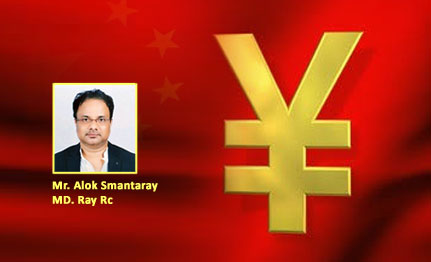
Chinese central bank governor Pan Gongsheng envisioned a new global currency order with a reduced role for the dollar. He outlined a vision in which China’s financial markets are more open and the yuan plays a central role in the world’s capital flows.
The dollar, the most popular currency in last year's survey, fell to seventh place this year, OMFIF said, with 70% of those surveyed saying the U.S. political environment was discouraging them from investing in the dollar -- more than twice the share a year ago. In currencies, the euro and yuan stand to benefit the most from a diversification away from the dollar. A net 16% of central banks surveyed by OMFIF said they plan to increase euro holdings over the next 12 to 24 months, making it the most in-demand currency, up from 7% a year ago, followed by the yuan.
But over the next decade, the yuan is more favoured, with a net 30% of central banks expecting to increase holdings and its share of global reserves seen tripling to 6%. With the dollar facing multiple challenges, Beijing is accelerating its long-standing campaign to reduce global reliance on the world’s reserve currency. What sets the latest push apart is timing: Chinese policymakers see erratic US decision-making and geopolitical tensions as the most favorable backdrop in years to promote the yuan.
The latest measures aim to not just facilitate trade but also open China’s financial markets and embed the yuan more deeply in investment flows. They include easing capital controls, expanding cross-border payment systems, and launching new financial products to attract foreign investors. Beijing’s hope is that a more internationalized yuan may reshape trade and global finance and challenge the dollar’s dominance in reserve portfolios.
To push that vision, the People’s Bank of China plans to establish an international operation center for the digital yuan in Shanghai. It’s also exploring the launch of the country’s first domestic currency futures, which could compete with similar hedging tools in offshore markets like Singapore and Chicago. In Hong Kong, a fast payment system was launched over the past weekend. It allows residents to wire payments in the yuan or Hong Kong dollar to the mainland for trade and services, further integrating the two markets. The city’s exchange is also expected to add yuan-denominated counters to the southbound stock link.